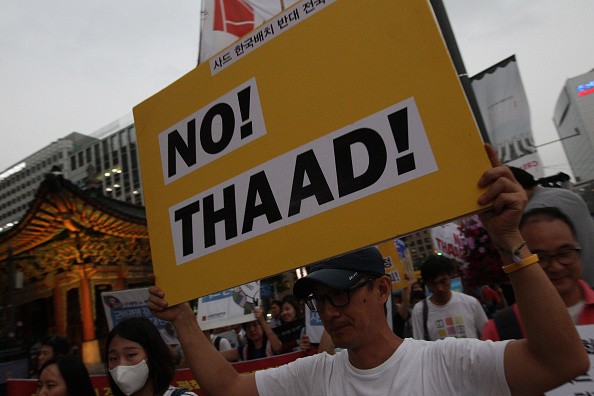It's no secret at this point that South Korea is at great odds with China over THAAD antimissile deployments, but a quirky Chinese pop ballad seeks to tell the world more about the country's spiteful reaction to a potentially disastrous trigger that can wreak havoc on the Korean peninsula.
The Chinese anti-THAAD song, sang by pop singer Xie Tianming, goes by the aptly made title "Chant of Love." The song meshes nationalist cues with a synthesizer-led melody, and the lyrics directly call for the boycott of products manufactured by South Korean giant Lotte, Quartz reported.
Chant of Love first came out in the form of a Tencent video showing Xie reciting lyricized accounts of the THAAD issue to melodic effect. Although the lyric's message does provide some room for reckoning, the same cannot be said about the song's artistic value, which is as cringeworthy as the THAAD is to China.
Nonetheless, it remains unclear on whether Chant of Love is a project promoted by the Chinese government, what with the latter's habit of showing pro-government propaganda materials. But the poor quality of Xie's video prompted China's state media social accounts against sharing it.
Be that as it may, Chant of Love resembles a crude encapsulation of seething anger from China over THAAD, which continues to escalate as South Korea maintains its defiant stance. The Chinese government has since started going after South Korean businesses including multinational conglomerate Lotte.
Lotte was particularly targeted by China's anti-THAAD groups for entering a land swap agreement with the South Korean military for use as a site for the antimissile deployments. The U.S. announced that the THAAD will start full operations by April, prompting the Chinese government to express agitation.
Such highlights China's stance against North Korea, which remains ambiguous despite the Chinese government's decision to halt coal imports from the Korean Peninsula's rogue northern half. The world's second-largest economy stressed that it favors a peaceful settlement of the decades-long division.



























